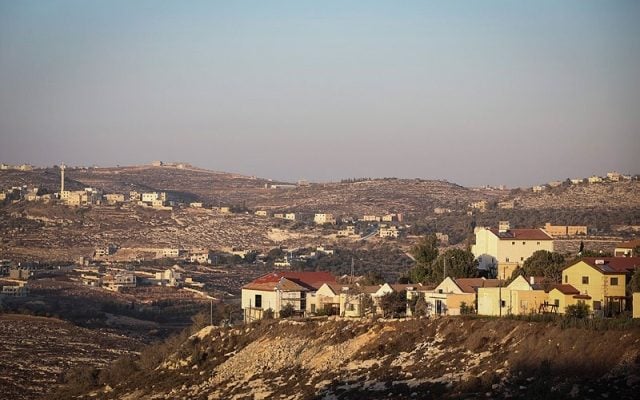When passed last year, the law now in danger of being nullified was hailed by the Right as a way to legalize many communities in Judea and Samaria.
By Batya Jerenberg, World Israel News
Israel’s High Court began a hearing Sunday on the Judea and Samaria Settlement Regulation Law which they had previous frozen, to determine whether it should be upheld or declared illegal.
The law, passed in February 2017, aimed to legalize retroactively up to 4,000 housing units that were built on what was claimed to be private Palestinian land in what is known as Area C (under full Israeli control) of Judea and Samaria.
This would prevent what has been the common practice of the court when Palestinians or left-wing organizations claim the settlements were built illegally on Palestinian property and petition for the destruction of the Israeli homes, even though the Jewish owners had been assured by government ministries and institutions that they had a right to be there.
The Regulations Law states that the Palestinian landowners would continue to own the property but their usage would be expropriated by the State. In return, they would be compensated at a rate of 125% of the worth of the property or receive alternative plots in a different location.
The Jews who built their homes “in good faith or at the state’s instruction” would be allowed to continue living there.
In order for the Palestinians to receive payment however, they would first have to prove their ownership of the land. This might be quite an obstacle to many – and it is an issue that the High Court has never dealt with.
Until now, property disputes in Judea and Samaria are not first adjudicated in lower courts, where plaintiffs have to prove the property is theirs. The Justice Minister is trying to change this situation as well by transferring these kinds of disputes to administrative courts.
Nine judges are hearing the case, which, in a very unusual twist, is not being defended by the government’s own attorney-general, Avichai Mandelblit, who opposes the law as being “unconstitutional.”
A ‘judicial coup’
Instead, the Justice Ministry hired a private lawyer, Harel Arnon, who argued that bowing to arguments claiming that “international law” was against citizens’ property rights being regulated in such a manner would mean that the state could have its laws cancelled by outside forces – which would be “a judicial coup.”
On the other hand, the law provides “a humanitarian response to the distress of thousands of families … who built their homes based on the representations of the authorities, [it is] a situation in which landowners do not enjoy their rights and chiefly a polarizing reality that is tearing Israeli society apart.”
There have been two rounds of destruction over recent years – an entire neighborhood in Beit El in 2015 and 42 families evicted from Amona in 2017 – which were accompanied by vociferous criticism by right-wing politicians and scenes of police in ugly confrontations with protesting civilians.
Many more such court orders are still awaiting fulfillment. Justice Minister Ayelet Shaked pushed through the law to prevent demolitions in these places – many of which the state has partially funded through building necessary infrastructure and putting up electricity and water lines.





